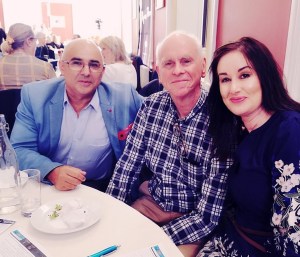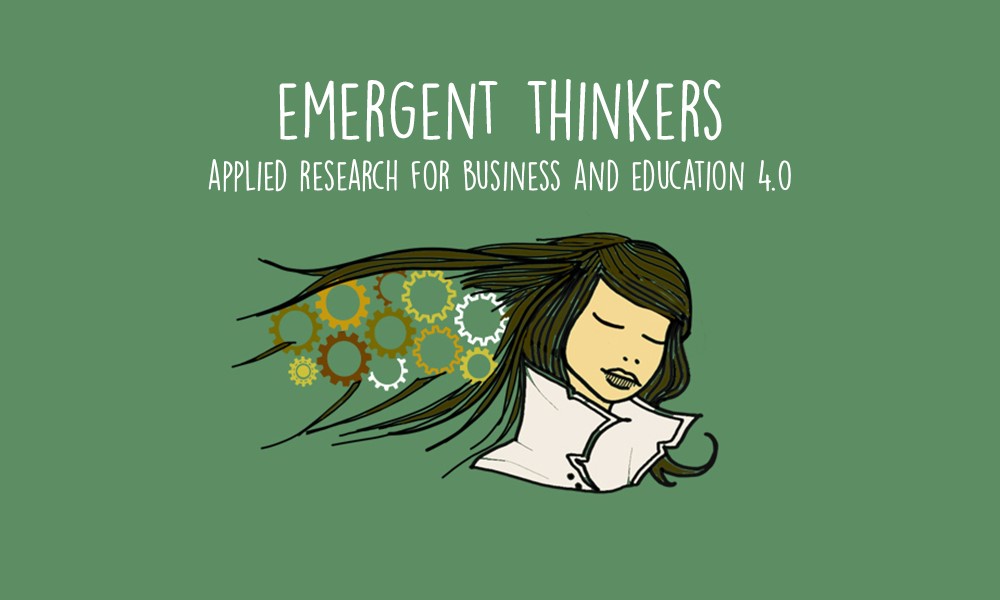
The Global Skills landscape is morphing quickly. In the educational context, the spaces and silos built up between disciplines are collapsing under the weight of 21c connectivity and the appetite for transversal competencies. There is a growing collective impetus for curricula reform, that which will robustly prepare learners for life beyond educational institutions. Educators now gather to work ‘sans frontiers’, focusing in, on the crucial skills that will facilitate adaptability and innovation, irrespective of context.
For a long while, ‘entrepreneurship’ appealed to a niche crowd intent on working for themselves. Broken free of this stereotype, ‘Entrepreneurship in education’ now firmly aligns with the range of creative, innovative and resilience skills needed to succeed in a 21st-century VUCA world.
According to its European definition, Entrepreneurial Learning refers to the “development of entrepreneurial attitudes, skills and knowledge that enable the individual to turn creative ideas into action…creating value in all areas of life and society, with or without a commercial objective”.
The ‘How To Of Entrepreneurial Learning; Why It Matters And What To Do’ conference hosted by UWTSD [11/11/19] perfectly captured the zeitgeist for a multi-disciplinary, experiential and deeply reflective approach to curriculum design. Keynotes speakers included the International Entrepreneurship Scholar, Professor Colin Jones, Carys Roberts, Welsh Government’s Youth Network Manager, Emeritus Professor Andy Penaluna, and Bantani Education’s Elin McCallum. Followed by expertly executed Petcha Kutcha presentations, they all delivered conjoined clarity on the significant impact Entrepreneurial Learning has had on individual learners, feeding economic, social and cultural value. Clear signposting to frameworks, support networks and resources were tendered by the plethora of experienced players drawn from a local, European and International context. Tried and tested tools, techniques and module-design that have shaped entrepreneurial mind-sets as well as critical thinking, problem-solving, communication, risk-taking and teamwork were shared. Bangor University’s ‘Enterprise by Design’ offered an impressive example of the heights and breadth of development achieved through a 10-week inter-disciplinary business-partnered challenge that supports t-shaped learning. Outstanding success for their students who have developed abstract and innovative thinking skill with strong foundation in core knowledge areas.
No other domain of education is poised to help develop the specific attributes students need to navigate and succeed in the 21st century (Jones, 2016)
Deep reflection supports authentic learning
Prof. Colin Jones emphasised the responsibilities of educators to focus not upon the teaching but on the processes of learning. To actively facilitate learner reflection that goes way beyond the surface level. Good reflective pedagogy helps develop the necessary knowledge, competencies, and values that are needed to deal with the challenges afforded by our complex, and conflicted world. As educators we design learning experiences that may arrest, stretch and have a neutral impact on our learner’s growth. “Designing an experience that doesn’t have adequate reflection connected to it brings it into the space of being non-educative. It may be fun or interesting, but if the reflection isn’t authentic and true, then it’s not going to lead to the growth required”.
Prof. Jones continued to extol the benefits of ‘pedagogy of discomfort’ and the drilling down to uncharted depths of understanding of everyday behaviours, connecting further to a sense of identity and self-worth. By working through his ‘STEPs reflective model’ based on Mezirow’s Transformation Theory he supports his learners in accessing their “Seelings”. The product of “the conversion of awareness of feelings into an understanding of feelings, into a greater sense of identity, and ultimately, self-love”.
“The experience of cognitive discomfort is not an unfortunate consequence of new learning: it is an essential prerequisite of new learning” (Katz & Dack, 2013)
In the recent era of ‘assessment’ based on rigid testing and standards, there was a welcome reinforcement for the acceptance that learners must be comfortable with failure, as an essential part of the learning process. But this starts with the educators, who must ensure Learning Design and Assessment embodies the right type of activity, and the right depth of feedback and reflection, supported with better questions that propel understanding in deeper and more innovative ways (Donsky, 2015).
It is clear that change is afoot, and there are a growing number of educators who are becoming far more comfortable with adopting innovative and transformational pedagogy, whilst a honest recognition there remains big challenges ahead for widespread and consistent adoption.
Taking risks and learn to live with your mistakes interestingly applies to both the educator and the educated!
Final thoughts
Key take-aways as one delegate of many will be subjective, but for me, an overarching message was that pedagogy and assessment must be shaped by authentic and experiential learning, and embedded with deep reflection if orientated towards creating innovative, creative, action-orientated, adaptive and resilient mind-sets. Transformative inspired ‘Entrepreneurial Learning’ supports real learning and sense-making, and the growth of knowledge, skills and behaviours fit for the complexity of our 21st-century global world.
Thanks go to Jay Smith, Entrepreneur, & UWTSD Graduate for his expert ‘Master of Proceedings’ and to Kathryn Penalua Associate Professor in Enterprise Education, UWTSD, lead host of the event sponsored by Welsh Government, Swansea University and Coleg Sir Gar.
Thanks also to Lesley Cottrell (Coleg y Cymoedd ), Rona Griffiths (Coleg Cambria), Christine Bissex-Foster (Merthyr College), Tony Orme (Aberystwyth University), Dr Siwan Mitchelmore, Dr Steffan Thomas & Lowri Owen (Bangor University), Emma Forouzan (USW) & Steve Osbourne (Cardiff Met).
If you are interested in the formal frameworks highlighted in the sessions for application in your own learning design see below:
As signposted by Elin McCallum, Bantani Education
EntreComp: The Entrepreneurship Competence Framework (Avail) https://publications.jrc.ec.europa.eu/repository/bitstream/JRC101581/lfna27939enn.pdf
As introduced by Prof. Andy Penaluna:
The HEA (now Advance HE)’s Essential Framework for Enhancing Student Success
https://www.heacademy.ac.uk/system/files/downloads/Framework%20for%20Enhancing%20Student%20Success%20in%20Higher%20Education_0.pdf

References
Donskey, D. (2016) ‘What is the role of failure and struggle in learning?’ High Ed Revolution, 5th August 2016 [online]. Available: https://higheredrevolution.com/what-is-the-role-of-failure-and-struggle-in-learning-8f900e1f9a11 [Accessed 11th November 2019].
Jones, C. (2016) ‘Enterprise Education: Towards the Development of the Heutagogical Learner’, All Ireland Journal of Higher Education, 8 (1)(Spring 2016, pp. 254.1-254.16.
Katz, S. & Dack, L.A. (2013) ‘Intentional Interruption: Breaking Down Learning Barriers to Transform Professional Practice’, Sage Publications: London.
Lackeus, M . (2015) ‘Entrepreneurship in Education: What, Why, When, How’, Entrepreneurship 350, Background Paper [online]. Available: https://www.oecd.org/cfe/leed/BGP_Entrepreneurship-in-Education.pdf [Accessed 11th November 2019].


Like!! I blog frequently and I really thank you for your content. The article has truly peaked my interest.
LikeLike